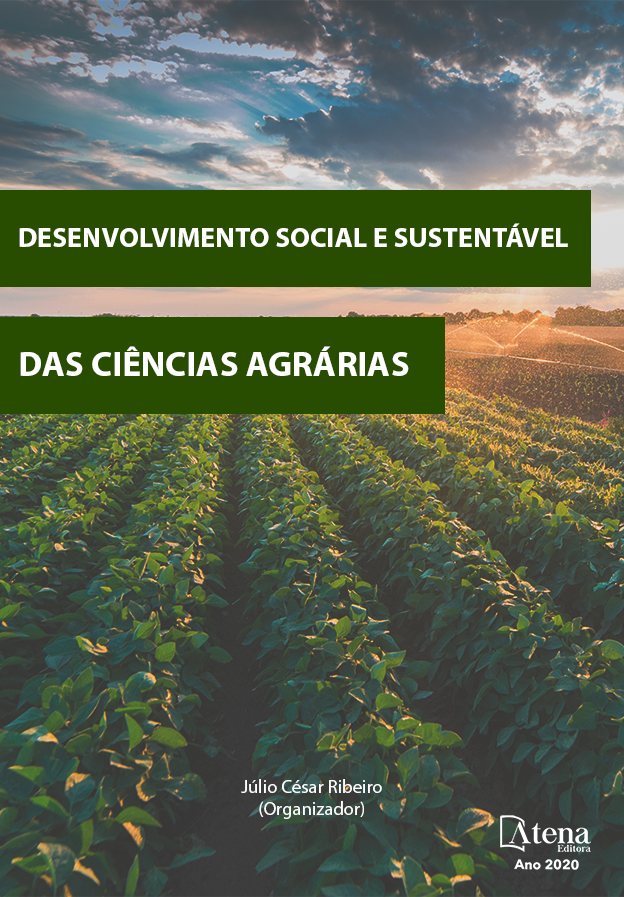
AVALIAÇÃO PARCIAL DE INDICADORES DO PROGRAMA DE AGRICULTURA DE BAIXA EMISSÃO DE CARBONO
A produção mundial de carne bovina é de 63,62 milhões de toneladas, sendo o Brasil o segundo maior produtor com 10,20 milhões de toneladas. As áreas de pastagem são responsáveis por pouco mais de 97% da alimentação de bovinos no país. Contudo, mais de 80% dessas se mostram sob algum grau de degradação, reduzindo a produtividade, qualidade nutricional e potencial para reduzir as emissões de gases de efeito estufa (GEE). Através de políticas públicas, como o plano ABC, as práticas e tecnologias sustentáveis de produção visando reduzir a emissão GEE no setor agropecuário tem sido foco. Dessa forma, o objetivo do presente trabalho é discutir a efetividade do Plano ABC como política pública, para a recuperação de pastagens, visando o aumento das áreas recuperadas, a remoção do carbono equivalente e a produtividade das áreas. Para isto foram realizadas pesquisas nas principais instituições e empresas do setor agrário, como Embrapa, Epamig, Emater, Mapa, Senar, dentre outros, a fim de analisar e comparar seus estudos, para o estado de Minas Gerais. Foi possível observar nos resultados analisados que, o Plano ABC tem sido efetivo para a capacitação e adoção de práticas de manejo e recuperação de pastagens no Brasil e em Minas Gerais, com aumento de assistentes técnicos e a redução de mais de 15 mil hectares de áreas degradadas, até o ano de 2017. Foi observada a redução do efetivo, em densidade de bovinos, constatando uma mudança no cenário entre as regiões produtoras do Norte de Minas, mas com melhoria na qualidade de pastagens.
AVALIAÇÃO PARCIAL DE INDICADORES DO PROGRAMA DE AGRICULTURA DE BAIXA EMISSÃO DE CARBONO
-
DOI: 10.22533/at.ed.73320131022
-
Palavras-chave: Bovinocultura. Áreas degradadas. Plano ABC.
-
Keywords: Cattle farming. Degraded areas. ABC plan.
-
Abstract:
World meat production is 63.62 million tons, with Brazil being the second largest producer with 10.20 million tons. Grazing areas represent just over 97% of the livestock feed in the country. However, more than 80% of these are under some degree of degradation, which reduces productivity, nutritional quality and the potential to reduce greenhouse gas (GHG) emissions. Through public policies, such as the ABC plan, sustainable production practices and technologies have been focused on reducing GHG emissions in the agricultural sector. Therefore, the objective of this work is to discuss the effectiveness of the ABC Plan as a public policy for pasture recovery, with the objective of increasing the recovered areas, the elimination of carbon equivalent and the productivity of the areas. For this, research was carried out in the main institutions and companies of the agricultural sector, such as Embrapa, Epamig, Emater, Mapa, Senar, among others, to analyze and compare their studies for the state of Minas Gerais. It was observed in the analyzed results that the ABC Plan has been effective for training and adoption of pasture management and recovery practices in Brazil, with the increase of technical assistants and the reduction of more than 15 thousand hectares of degraded areas, until 2017 A reduction in the density of the cattle was observed, observing a change in the scenario between the producing regions of the north of Minas, but with an improvement in the quality of the pasture.
-
Número de páginas: 12
- Edson Aparecido dos Santos
- Siro Paulo Moreira


